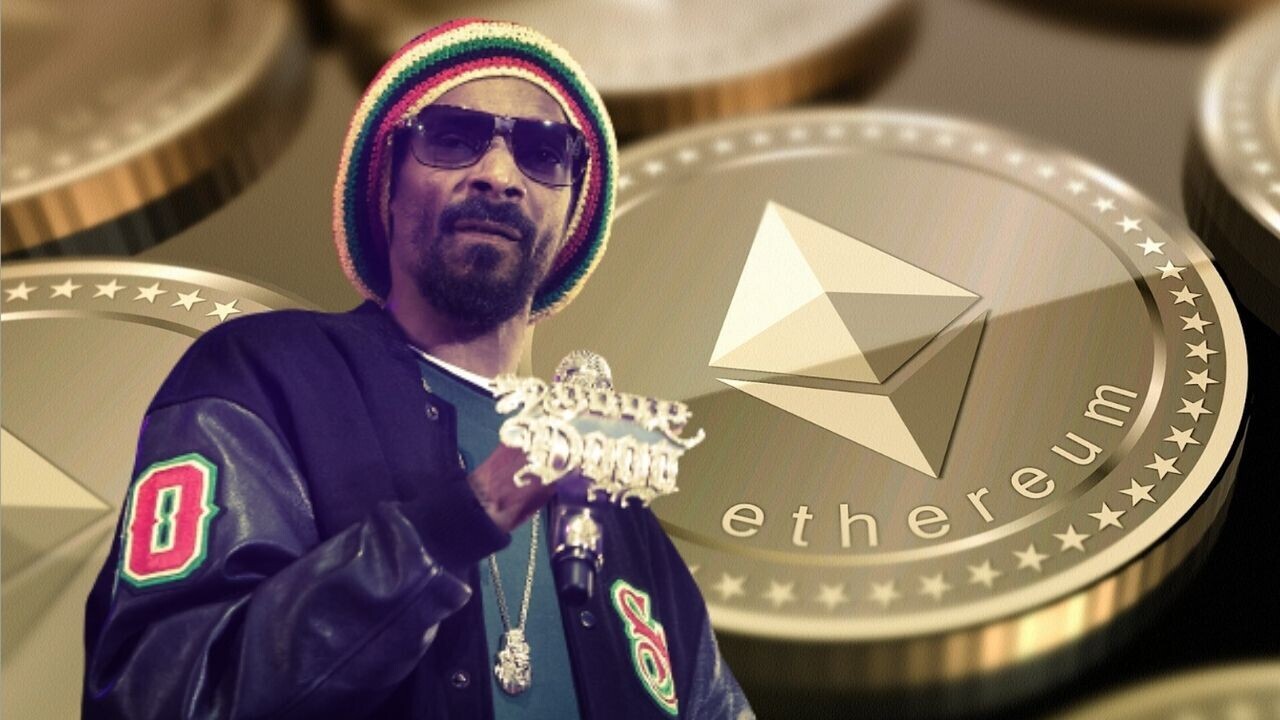When Snoop Dogg announced his acquisition of Death Row Records last month, fans were thrilled that the legendary rap label was being resurrected.
We were less thrilled when, weeks later, most of the Death Row catalog disappeared from streaming platforms.
The sudden removals were swiftly linked to Snoop’s unusual plans for the brand.
“Death Row will be an NFT label,” the Doggfather announced in February.
“We will be putting out artists through the metaverse… Just like we broke the industry when we was the first independent to be major, I want to be the first major in the metaverse.”
The first trial of the experiment was Snoop’s 20th studio album, BODR (Bacc on Death Row).
The LP was made available in a limited edition NFT version, which offered three exclusive bonus tracks and a range of exclusive bonuses. Each of the 25,000 copies cost a cool $5,000.
“If anything is constant, it’s that the music industry will always be changing,” Snoop said in a statement.
“Blockchain tech has the power to change everything again and tip the table in favor of the artists and the fans, and we’re going to be right at the front of the pack.”
The benefits for Snoop soon became clear: the NFT sale reportedly generated over $45M within five days of the drop.
A day after the Death Row classics were pulled from streaming services, Snoop released another NFT project: the Death Row Mixtape Vol. 1.
The 1,000 editions sold out within an hour. You can still listen to the tracks on OpenSea, but the platform provides a pretty awful user experience.
Wooing musicians
Snoop is perhaps the most prominent web3 proponent in the music industry, but he’s not the only artist to have cashed in on the craze.
Grimes sold almost $6m in NFTs in just 20 minutes last year, while Steve Aoki estimates he’s made more money from the tokens than from a decade of album advances.
These earnings are particularly alluring in the Spotify era. Most featured artists earn tiny fractions of 1 cent per stream, while session musicians receive nothing at all.
NFTs enable them to bypass streaming services, alongside other pricey intermediaries such as major labels.
”Now artists are able to create content, track it, monetize it, and sell it directly to fans,” Jeff Yasuda, the CEO of music licensing service Feed.fm, told TNW.
It works like an auction; the value is determined by the bidders. At the end, one person gets the NFT. Think of it like like owning a 1 of a kind item in a game, or like “owning” an instagram post. It’s a weird thing to own, yes, but:
(more)— Mike Shinoda (@mikeshinoda) February 6, 2021
The potential riches are an obvious attraction to rich and poor artists alike. The impact on consumers, however, appears more mixed.
Dividing fans
NFTs are sometimes described as a new model of arts patronage, in which the wealthy fund creators and the general public benefits.
This promise can be realized when the music attached to an NFT is made available to all. Yet this often isn’t the case.
Sometimes the tracks are exclusively sold as costly, limited edition NFTs, which deprives many fans of the chance to hear them. This artificial scarcity could restrict the accessibility that’s one of the internet’s biggest benefits.
Those who can afford the NFTs can receive a range of perks, from “free” merchandise to concert tickets. But exclusivity, by definition, isn’t for everyone.
View this post on Instagram
Snoop’s early metaverse moves feel more reminiscent of a major label than an altruistic upstart; more like the realities of web2 than the promise of web3.
The project has also exposed the fragility of music streaming. Personally, I’ve been forced to spurn the metaverse for something more old-fashioned: my old Death Row CDs.
We’ve asked Death Row for further details on why the label’s albums were removed from streaming services. We’ll update this article if we receive a response.
Get the TNW newsletter
Get the most important tech news in your inbox each week.






